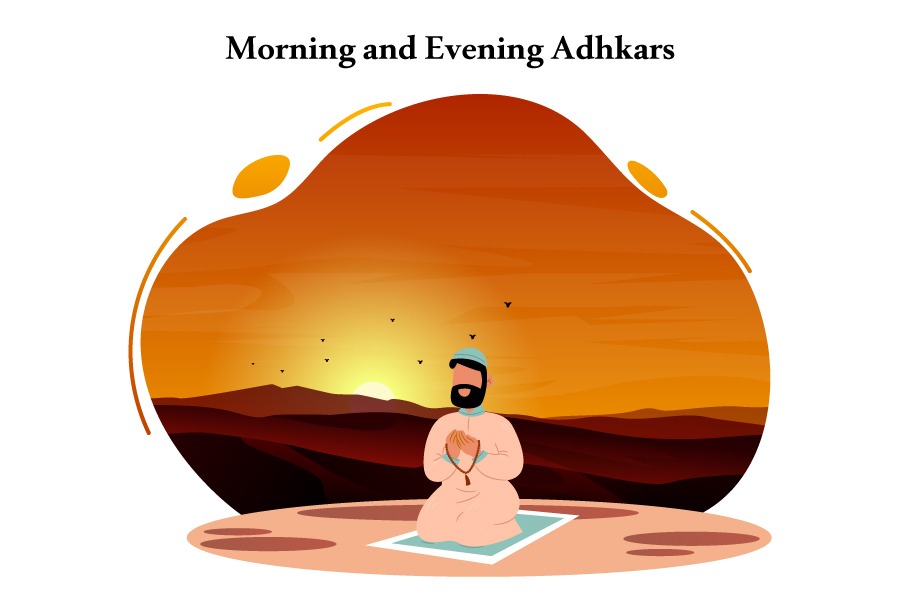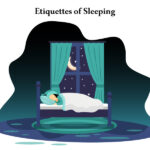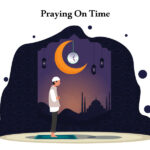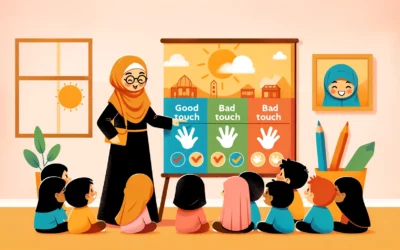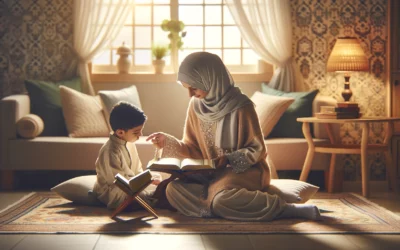In the hustle and bustle of our daily lives, finding moments of tranquility and inner peace becomes crucial. Morning and evening adhkar, also known as daily supplications, offers a beautiful opportunity to connect with our spirituality and find comfort. This article explores the significance of morning and evening adhkar, their benefits, and etiquttes.
Morning and Evening Adhkars
Allah instructed the Prophet Muhammad (SAW) and the believers to remember Him in the morning and the evening in over 15 āyāt of the Qur’ān. Allah says:
يٰٓأَيُّهَا الَّذِيْنَ آمَنُوا اذْكُرُوا اللهَ ذِكْرًا كَثِيْرًا. وَسَبِّحُوْهُ بُكْرَةً وَّأَصِيْلًا
“Believers, remember Allah often and glorify Him morning and evening” (33:41-42)
Here are the few Adhkars in the light of the Quran and Sunnah which is recommended to pray in daily life.
-
Reciting Ayat ul Kursi
Reciting Ayatul Kursi (Verse of the Throne) in the morning and evening adhkars holds great significance in Islamic practice. Ayatul Kursi is the 255th verse of Surah Al-Baqarah in the Quran and is revered for its profound meaning and spiritual benefits. By reciting it, Muslims seek refuge in Allah from all forms of harm, evil, and negative influences that they may encounter during the day or night.
ٱللَّهُ لَآ إِلَٰهَ إِلَّا هُوَ ٱلْحَىُّ ٱلْقَيُّومُ ۚ لَا تَأْخُذُهُۥ سِنَةٌ وَلَا نَوْمٌ ۚ لَّهُۥ مَا فِى ٱلسَّمَٰوَٰتِ وَمَا فِى ٱلْأَرْضِ ۗ مَن ذَا ٱلَّذِى يَشْفَعُ عِندَهُۥٓ إِلَّا بِإِذْنِهِۦ ۚ يَعْلَمُ مَا بَيْنَ أَيْدِيهِمْ وَمَا خَلْفَهُمْ ۖ وَلَا يُحِيطُونَ بِشَىْءٍ مِّنْ عِلْمِهِۦٓ إِلَّا بِمَا شَآءَ ۚ وَسِعَ كُرْسِيُّهُ ٱلسَّمَٰوَٰتِ وَٱلْأَرْضَ ۖ وَلَا يَـُٔودُهُۥ حِفْظُهُمَا ۚ وَهُوَ ٱلْعَلِىُّ ٱلْعَظِيمُ
Allah – there is no deity except Him, the Ever-Living, the Sustainer of [all] existence. Neither drowsiness overtakes Him nor sleep. To Him belongs whatever is in the heavens and whatever is on the earth. Who is it that can intercede with Him except by His permission? He knows what is [presently] before them and what will be after them, and they encompass not a thing of His knowledge except for what He wills. His Kursī extends over the heavens and the earth, and their preservation tires Him not. And He is the Highest, the Greatest.
(AlQuran 2:255)
-
Reciting the Muawwithat
Muawwithat means the last three Surahs of the Quran, Surah Ikhlas, Surah Falak, and Surah Nas.
Abdullah Bin Khubayb al-Juhanī (RA) reported that he went with other men on a dark and rainy night seeking the Prophet (SAW) to lead them in prayer. When they met him, the Prophet (SAW) said to Khubayb, “Say!” Not knowing what to say, Khubayb remained silent. The Prophet (SAW) made the same demand two more times. On the third time, Khubayb said,
“O Allāh’s Messenger, what should I say?”
The Prophet (SAW) replied:
“Say: “Qul how-Allāhu ahad” and the Mu’awwithātān, three times in the evening and the morning. This should protect you from all (harmful) things.”
-
Seek Forgiveness
The Prophet (SAW) said that Whoever says it with certitude in the morning and dies during the day before the evening, will reside in Jannah. And whoever says it with certitude in the evening and dies during the night before the morning, will reside in Jannah.
اللَّهُمَّ أَنْتَ رَبِّي لَّا إِلَهَ إِلَّا أَنْتَ، خَلَقْتَنِي وَأَنَا عَبْدُكَ، وَأَنَا عَلَى عَهْدِكَ وَوَعْدِكَ مَا اسْتَطَعْتُ، أَعُوذُ بِكَ مِنْ شَرِّ مَا صَنَعْتُ، أَبُوءُ لَكَ بِنِعْمَتِكَ عَلَيَّ، وَأَبُوءُ بِذَنْبِي فَاغْفِر لِي فَإِنَّهُ لَا يَغْفِرُ الذُّنُوبَ إِلَّا أَنْتَ
Allaahumma ‘Anta Rabbee laa ‘ilaaha ‘illaa ‘Anta, khalaqtanee wa ‘anaa ‘abduka, wa ‘anaa ‘alaa ‘ahdika wa wa’dika mas-tata’tu, ‘a’oothu bika min sharri maa sana’tu, ‘aboo’u laka bini’matika ‘alayya, wa ‘aboo’u bithanbee faghfir lee fa’innahu laa yaghfiruth-thunooba ‘illaa ‘Anta.
O Allāh, You are my Lord, and there is no (true) god but You. You created me, and I am Your servant, and I try to fulfill my covenant and promise to You as much as I am able. I seek Your protection from the evil of my doings. I admit to Your favor upon me, and I confess my sins to You, so forgive me, because no one forgives sins but You.
And the Prophet Muhammad (SAW) said,
مَنْ قَالَ سُبْحَانَ اللَّهِ وَبِحَمْدِهِ. فِي يَوْمٍ مِائَةَ مَرَّةٍ حُطَّتْ خَطَايَاهُ، وَإِنْ كَانَتْ مِثْلَ زَبَدِ الْبَحْرِ ”.
Whoever says, ‘Subhan Allah wa bihamdihi,’ one hundred times a day, will be forgiven all his sins even if they were as much as the foam of the sea.
(Sahih al Bukhari)
-
Last two Ayats of Surah Baqarah
The last two ayahs of the Surah al Baqarah hold great significance in Islam. It is narrated that Allah’s Messenger said
“It is sufficient for one to recite the last two verses of Surah Al-Baqarah at night”
ءَامَنَ ٱلرَّسُولُ بِمَآ أُنزِلَ إِلَيْهِ مِن رَّبِّهِۦ وَٱلْمُؤْمِنُونَ ۚ كُلٌّ ءَامَنَ بِٱللَّهِ وَمَلَٰٓئِكَتِهِۦ وَكُتُبِهِۦ وَرُسُلِهِۦ لَا نُفَرِّقُ بَيْنَ أَحَدٍ مِّن رُّسُلِهِۦ ۚ وَقَالُوا۟ سَمِعْنَا وَأَطَعْنَا ۖ غُفْرَانَكَ رَبَّنَا وَإِلَيْكَ ٱلْمَصِيرُ
The Messenger has believed in what was revealed to him from his Lord, and [so have] the Believers. All of them have believed in Allāh and His angels and His books and His messengers, [saying], “We make no distinction between any of His messengers.” And they say, “We hear and we obey. [We seek] Your forgiveness, our Lord, and to You is the [final] destination.”
لَا يُكَلِّفُ ٱللَّهُ نَفْسًا إِلَّا وُسْعَهَا ۚ لَهَا مَا كَسَبَتْ وَعَلَيْهَا مَا ٱكْتَسَبَتْ ۗ رَبَّنَا لَا تُؤَاخِذْنَآ إِن نَّسِينَآ أَوْ أَخْطَأْنَا ۚ رَبَّنَا وَلَا تَحْمِلْ عَلَيْنَآ إِصْرًا كَمَا حَمَلْتَهُۥ عَلَى ٱلَّذِينَ مِن قَبْلِنَا ۚ رَبَّنَا وَلَا تُحَمِّلْنَا مَا لَا طَاقَةَ لَنَا بِهِۦ ۖ وَٱعْفُ عَنَّا وَٱغْفِرْ لَنَا وَٱرْحَمْنَآ ۚ أَنتَ مَوْلَىٰنَا فَٱنصُرْنَا عَلَى ٱلْقَوْمِ ٱلْكَٰفِرِينَ
Allāh does not burden any soul except [with that within] its capacity. It will have [the consequence of] what [good] it has gained, and it will bear [the consequence of] what [evil] it has earned. “Our Lord, do not take us to task if we have forgotten or erred. Our Lord, and lay not upon us a burden like that which You laid upon those before us. Our Lord, and burden us not with that which we have no ability to bear. And pardon us, and forgive us, and have mercy upon us. You are our protector, so give us victory over the disbelieving people.”
(AlQuran 2:285-286)
-
Tasbeeh-e-Fatimah
Abu Huraira reported that Fatima came to Allah’s Apostle (SAW) and asked for a servant and told him of the hardship of household work. He said:
You would not be able to get a servant from us. May I not direct you to what is better than the servant for you? Recite Subhaana Allah thirty-three times, al- Hamdu li-Allah thirty-three times, and Allah-o-Akbar thirty-four times as you go to bed. This hadith has been narrated on the authority of Suhail with the same chain of transmitters.
-
Adhkar at Tahajjud time
Prophet Muhammad (SAW) said, recite the following Dua when you wake up at night,
لاَ إِلَهَ إِلاَّ اللَّهُ وَحْدَهُ لاَ شَرِيكَ لَهُ، لَهُ الْمُلْكُ، وَلَهُ الْحَمْدُ، وَهُوَ عَلَى كُلِّ شَىْءٍ قَدِيرٌ. الْحَمْدُ لِلَّهِ، وَسُبْحَانَ اللَّهِ، وَلاَ إِلَهَ إِلاَّ اللَّهُ، وَاللَّهُ أَكْبَرُ، وَلاَ حَوْلَ وَلاَ قُوَّةَ إِلاَّ بِاللَّهِ.
None has the right to be worshipped but Allah. He is the Only One and has no partners. For Him is the Kingdom and all the praises are due for Him. He is Omnipotent. All the praises are for Allah. All the glories are for Allah. And none has the right to be worshipped but Allah And Allah is Great And there is neither Might nor Power Except with Allah.
ثُمَّ قَالَ اللَّهُمَّ اغْفِرْ لِي
And then says: — Allahumma, Ighfir li (O Allah! Forgive me)
Significance of adhkar for morning and evening
The adhkars (remembrances) recited in the morning and evening play a crucial role in a Muslim’s daily routine. They are a means for Muslims to remember and seek blessings from Allah (God). These adhkars consist of supplications, verses from the Quran, and phrases that serve as reminders of Allah’s presence and guidance throughout the day.
-
Morning Adhkars:
Morning adhkars begin with expressions of gratitude to Allah for granting another day of life. Muslims acknowledge and thank God, cultivating appreciation and humility. They also seek Allah’s blessings, protection, and guidance throughout the day. It may include specific Quranic verses that act as a shield against evil and harm. Muslims believe that reciting these verses protects them from negative influences, temptations, and adversity.
Morning adhkars allow believers to spiritually prepare themselves before engaging in daily activities. They help focus the mind, seek spiritual strength, and invoke Allah’s assistance in facing challenges and fulfilling responsibilities.
-
Evening Adhkars:
Evening adhkars often contain supplications for protection during the night. Muslims seek Allah’s safeguarding from nightmares, evil spirits, and any harm that may also provide an opportunity for self-reflection and soul-searching. Muslims reflect on their actions and seek forgiveness from Allah for any shortcomings or sins committed during the day.
Evening adhkars may include verses that remind believers of Allah’s mercy and forgiveness. Muslims understand that regardless of their mistakes, Allah’s mercy is vast and accessible to those who sincerely seek it. This provides solace, comfort, and hope for a better tomorrow.
Etiquettes of morning adhkars and evening
To enhance the adhkar experience and derive maximum benefit, consider the following etiquettes in your mind,
- Set a time in the morning and evening that works best for you to recite adhkar consistently.
- Choose a peaceful and clean space for your adhkar, free from distractions.
- Focus on the meanings and let your heart and mind be present in the supplications.
- Familiarize yourself with the morning and evening adhkar recommended by scholars or spiritual guides.
- Begin by reciting a few adhkar and gradually increase the number as you become more comfortable.
- Take the time to understand the meanings behind the supplications and reflect upon their significance in your life.
- Repeat adhkar regularly to make them a habit and benefit from their profound effects.
Conclusion
Morning and evening adhkars hold immense significance in Islamic practice and offer a means of connecting with spirituality and finding inner peace amidst the chaos of daily life. These adhkars, consisting of supplications, verses from the Quran, and phrases of remembrance, allow Muslims to express gratitude, seek blessings, and ask for protection and forgiveness from Allah.
To make the most of the adhkar experience, it is important to set aside dedicated time in the morning and evening, choose a peaceful environment, and focus on the meanings behind the supplications. By making adhkars a regular habit, believers can cultivate mindfulness, serenity, and a stronger connection with their faith.



